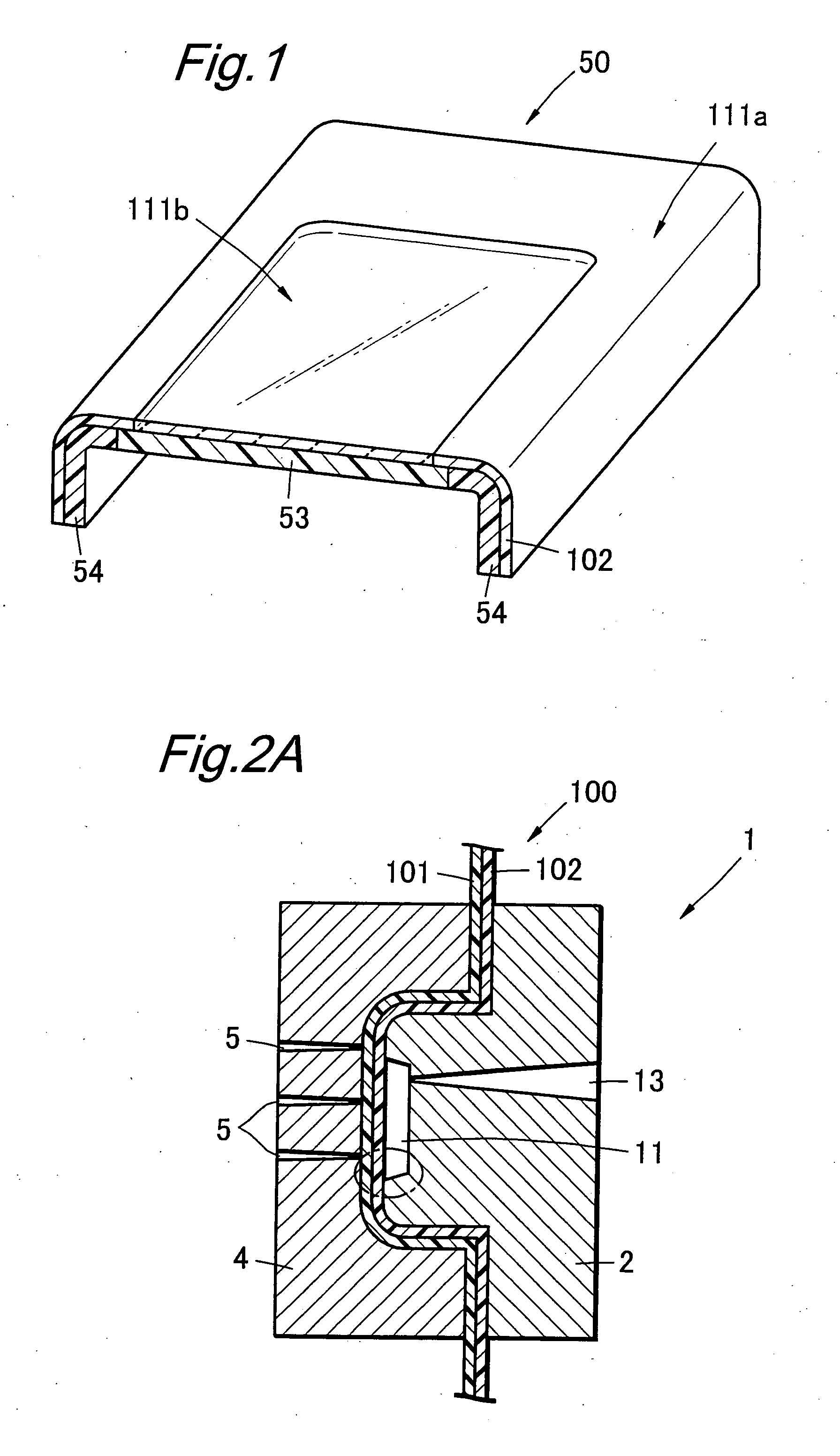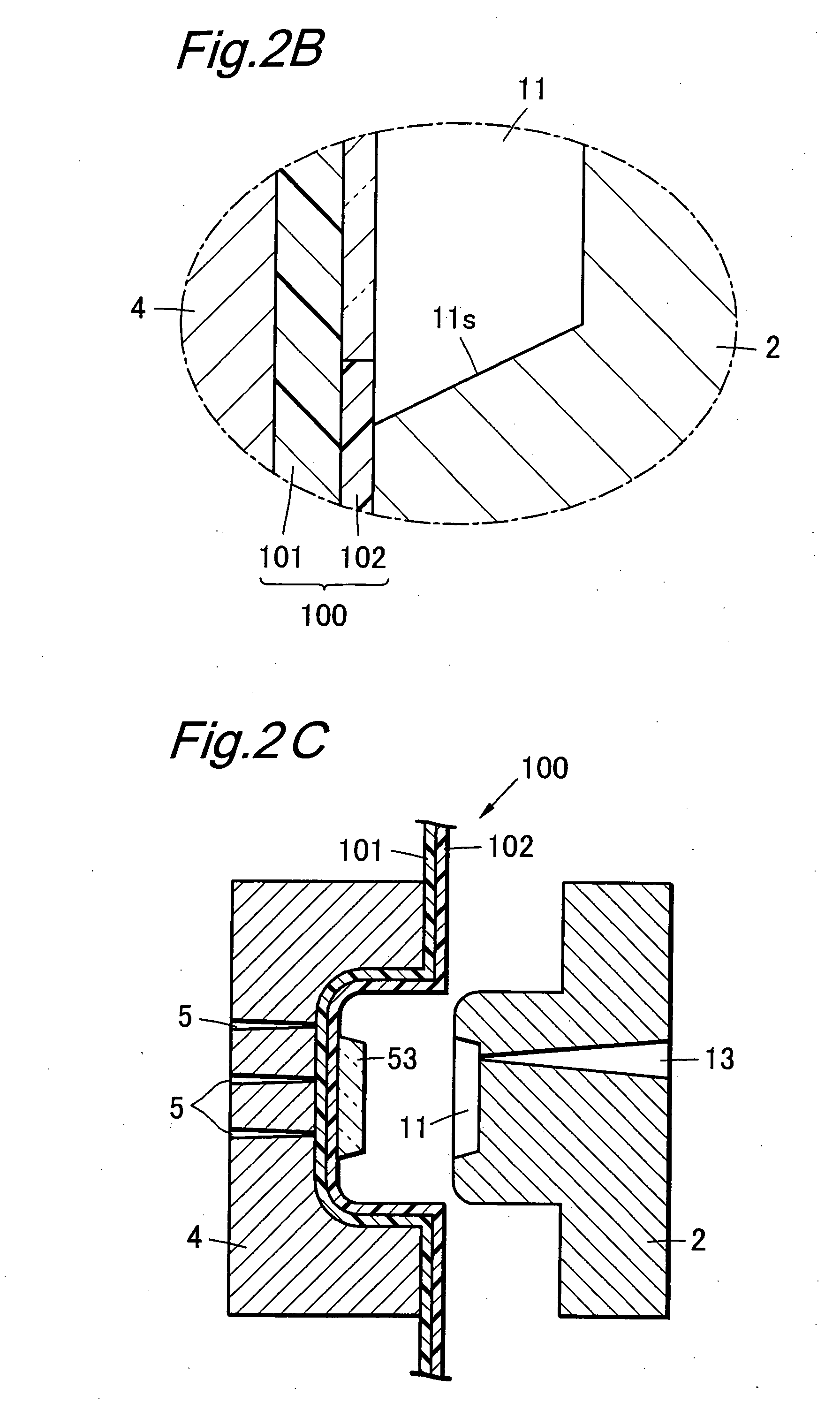Method of Manufacturing Casing for Electronic Apparatus
- Summary
- Abstract
- Description
- Claims
- Application Information
AI Technical Summary
Benefits of technology
Problems solved by technology
Method used
Image
Examples
examples
[0081]A biaxial oriented polyethylene terephthalate film having a thickness of 38 μm was used as a base sheet, onto which an ink made of a mixture of an ultraviolet curable acrylic polyol, isocyanate and azo polymerization initiator was applied with a thickness of 5 μm as the peeling layer by using a gravure coating method, onto which an ink formed by dispersing a pigment in an acrylic resin was partially applied to form four layers with respective thicknesses in a range from 0.8 to 1.5 μm as the pattern layer by using a gravure printing method, and onto which a vinyl chloride-vinyl acetate copolymer-based resin was further applied with a thickness of 2 μm as the bonding layer by using a gravure coating method; thus, a transfer material was obtained.
[0082]The transfer material thus obtained was loaded in a transfer material feeding device placed in a two-color molding apparatus, and the primary molding core mold and the cavity mold were clamped to form a primary molding cavity. Next...
PUM
| Property | Measurement | Unit |
|---|---|---|
| Fraction | aaaaa | aaaaa |
| Transmittivity | aaaaa | aaaaa |
| Temperature | aaaaa | aaaaa |
Abstract
Description
Claims
Application Information
 Login to View More
Login to View More - R&D
- Intellectual Property
- Life Sciences
- Materials
- Tech Scout
- Unparalleled Data Quality
- Higher Quality Content
- 60% Fewer Hallucinations
Browse by: Latest US Patents, China's latest patents, Technical Efficacy Thesaurus, Application Domain, Technology Topic, Popular Technical Reports.
© 2025 PatSnap. All rights reserved.Legal|Privacy policy|Modern Slavery Act Transparency Statement|Sitemap|About US| Contact US: help@patsnap.com



